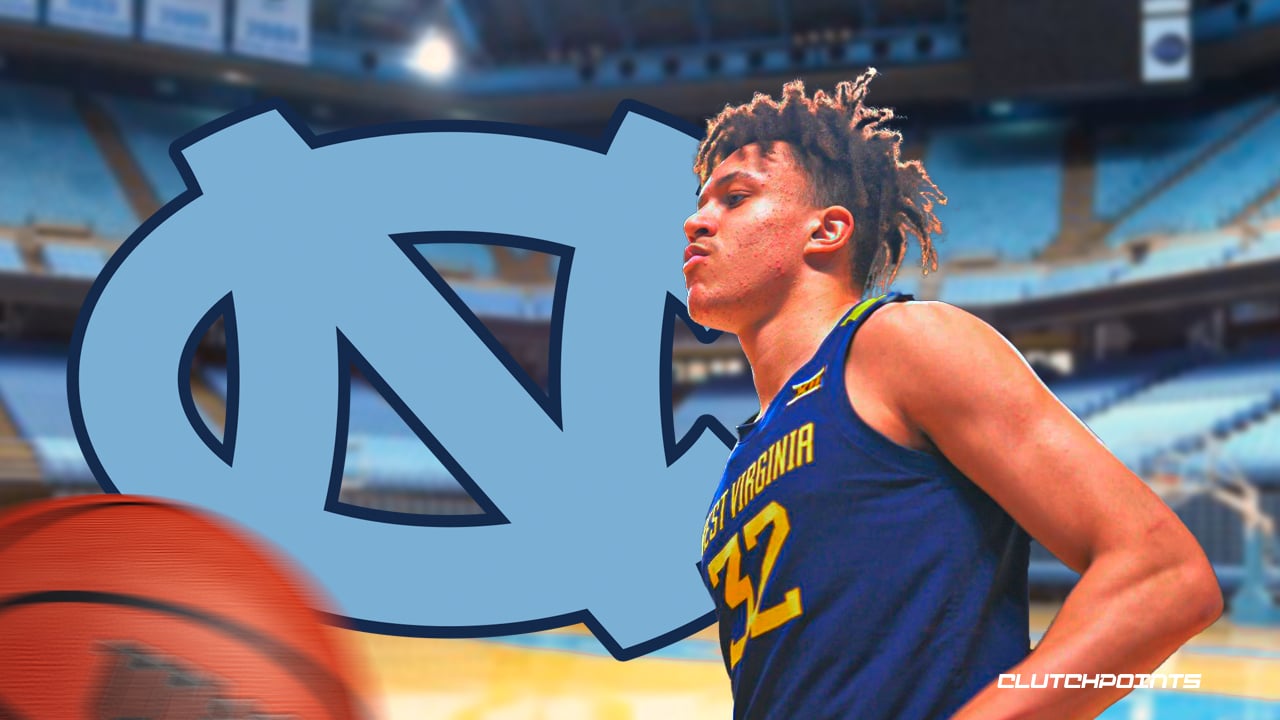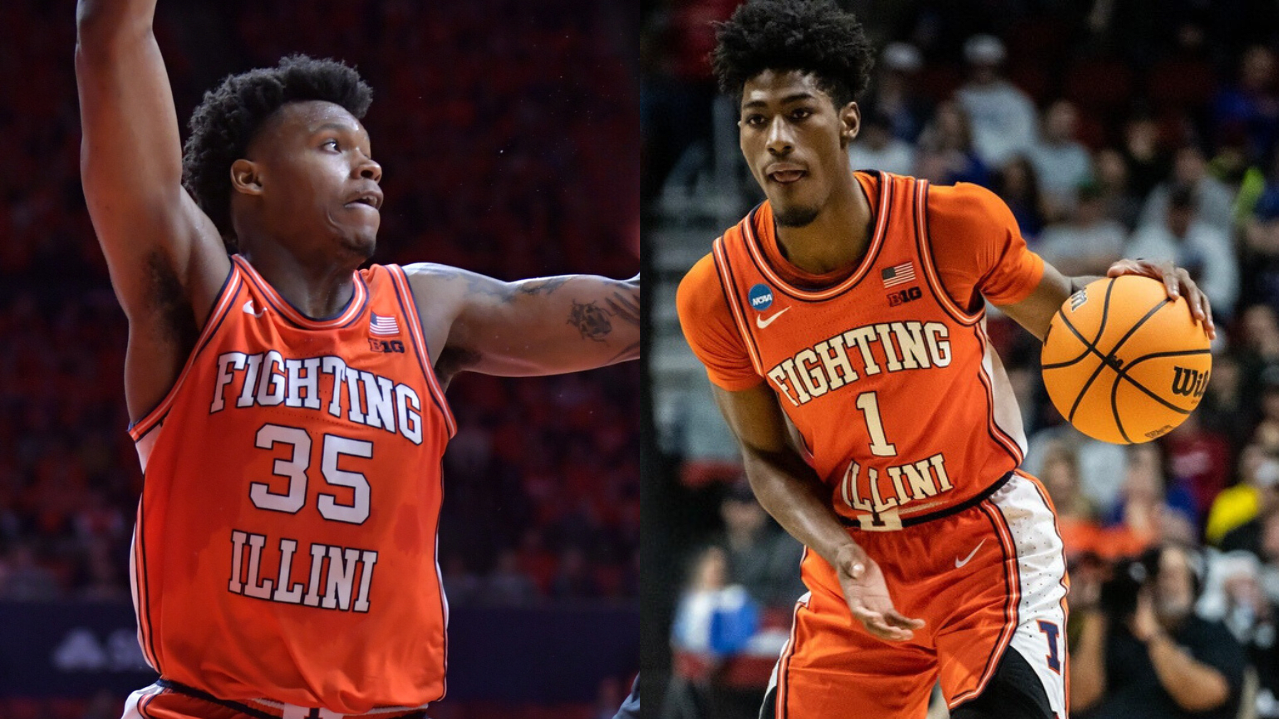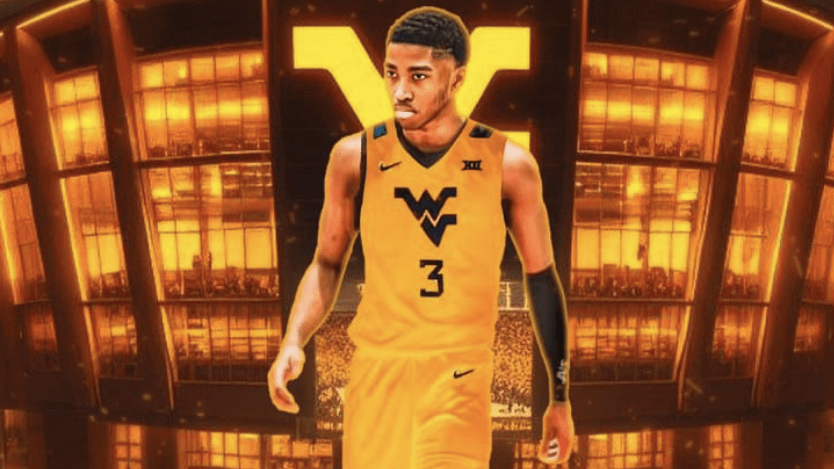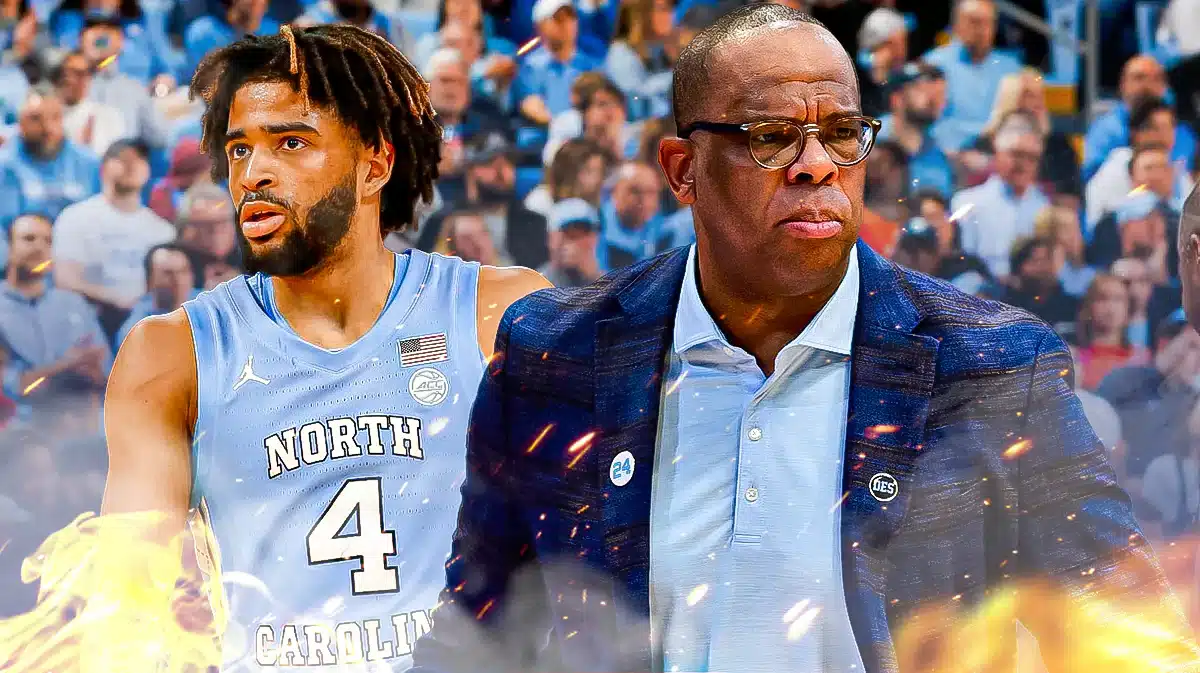Virginia
North Carolina Lands West Virginia Big Man Amid Bob Huggins Fallout

With Bob Huggins resigning from his role as West Virginia men’s basketball head coach, there has been a mass exodus of players leaving the program. North Carolina has been the latest team to benefit off of West Virginia’s misfortune, landing one of the more exciting players in the transfer portal.
James Okonkwo has transferred to North Carolina, via Charlie Parent of Zagsblog. Okonkwo becomes the fifth player to transfer to the Tar Heels this offseason as North Carolina looks to load up for an NCAA Tournament run.
After appearing in just three games his first year on campus, Okonkwo saw the court in 31 Mountaineers contests this past season. Over 11 minutes a game, he averaged 2.5 points and 3.2 rebounds per game while shooting 57 percent from the floor.
Stretching Okonkwo’s stats over 40 minutes, the forward would average 9.1 points and 11.8 rebounds per game. However, he isn’t necessarily guaranteed a starting role upon arrival. Still, Okonkwo will look to make a major impact in whatever role North Carolina puts him in.
The Tar Heels are coming off of a disappointing season in which they missed the NCAA Tournament. They went 20-13 overall and just 11-9 in ACC play. Hubert Davis and company have been working all offseason to ensure that outcome doesn’t happen again this upcoming season.
James Okonkwo will now play a role in North Carolina’s resurgence. While things didn’t end up working out in West Virginia, Okonkwo has now been afforded a fresh start. Playing for the Tar Heels, Okonkwo is poised for a major opportunity.

Virginia
Foster parent inquiries down 40% in Virginia, but you can help

LYNCHBURG, Va. (WDBJ) – May is National Foster Care Month. As interest in fostering declines across the commonwealth, United Methodist Family Services of Virginia is spreading knowledge about the process of becoming a foster parent.
UMFS is a nonprofit that provides community-based services for kinship families, foster care, adoption and independent living for kids aging out of foster care.
“We like to keep children close to their birth families, so they don’t have to move far, or they don’t have to be separated from siblings. So, we get a call, we get an email or an online referral from a local Department of Social Services (DSS) that says we need a placement and here are the needs. So, then it’s our job to then match and identify families for those children to best suit their needs,” said Regional Director of UMFS South & West Region, Holly Coates.
Currently, there are nearly 5,400 children in Virginia’s foster care system and nearly 600 children in foster care in Southwest Virginia. The state is ranked one of the worst for the number of youths aging out of the system at 18 years old.
“We need more homes so that we can serve more children. There are more children coming into care at different times and we don’t like to say no that we don’t have an option for a child because that leaves children sleeping in hospitals or DSS’s or in group homes where they don’t need to be. They need to be in homes with families that care about them, nurture them and allow them to be kids,” said Coates.
A need Deb Lowe wanted to fulfill and learn more about. Since 2018, she has fostered 8 children with UMFS in Lynchburg.
“I was a little leery because I am a single parent with no other biological kids. But I like to find out the things that they like and that’s where I start. Of course, there are challenges when you’re getting to know somebody new that you haven’t lived with before. To have that change very suddenly for both the parent and the child takes some adjustments. To have good support is very crucial,” said Foster Parent, Deb Lowe.
Lowe’s foster son Lukas, who she has since adopted, said when he first started living with her, he was not happy. But over time things have changed for the better.
“I’ve gotten good grades and my attitude towards my mom is really, really good. It made me feel really special and made me feel like God really wanted me here. He made a miracle for me and changed my life,” said Lukas.
UMFS data reveals foster care inquiries by prospective parents continues to trend downward. In fact, the nonprofit is seeing a 40% decline in interested caregivers since 2020. The decrease follows national trends. More than half of U.S. states experienced reductions in licensed foster homes in 2023.
“I think some of the barriers include myths about the children in general. I also think that there are a lot of misunderstandings about what it takes to become a foster parent. That’s there’s no support, or that you have to be wealthy, or you have to own your own home, or you have to be married and none of those things are accurate. It’s just a matter of being able to develop a relationship with the child,” said Coates.
Becoming a foster parent through UMFS takes roughly 3-6 months, and most of the training takes place online. Coates said the average stay in foster care is 6 to 18 months.
For more information about becoming a foster parent or to register for a virtual information session visit https://www.umfs.org/get-involved/become-a-foster-parent-virginia/
Coates said UMFS and the state is also moving towards a focus on kinship care. Working to support birth families, next of kin and friends to care for the child or be a support, rather than the child going into foster care.
Copyright 2024 WDBJ. All rights reserved.
Virginia
Virginia Education Association discusses pay discrepancy for teachers

ROANOKE, Va. – The Virginia Education Association wants to clear up statements Gov. Glenn Youngkin made to 10 News about teacher pay moving forward.
This week, the governor signed the next biennium budget for the state. One highlight of the budget was a record amount of investment into education, including teacher pay.
“At the heart of the investment is bringing teacher salaries from well below the national average, to at the national average this year and expected to be in excess of the national average over the next two years,” Youngkin said in an interview with 10 News on Tuesday.
Following 10 News’ story, the Virginia Education Association (VEA) reached out saying the governor’s statement is inaccurate.
“The governor is referencing the Virginia Department of Education’s ‘Annual Salary Survey Report’ which takes into account averages from guidance counselors and other technical positions,” Chad Stewart with VEA said.
The VEA even sent a letter to the governor’s office reading in part:
VDOE’s “Annual Salary Survey Report” includes all salary expenditures (including supplemental pay) for classroom teachers, homebound teachers, guidance counselors, librarians, and instructional technology positions. NEA includes only classroom teachers, substitutes, and homebound teachers (the same method for each state) and DOES NOT include supplemental pay
VEA letter to Gov. Youngkin
“It’s not an apples-to-apples comparison. We’re kind of taking this orange from our own Virginia Department of Education number and inserting it into the National Education Association report,” Stewart said.
Virginia’s estimated average teacher pay in the most recent NEA Rankings and Estimates Report released two weeks ago is $65,058 this year, $6,641 below the estimated national average which is $71,699.
Stewart also said the state will need to offer a 14% increase in the next budget cycle to reach the promised legislative goal of meeting the national teacher pay average by the 2027-28 school year.
Copyright 2024 by WSLS 10 – All rights reserved.
Virginia
West Virginia GOP Senate president, doctor who opposed drawing back vaccine laws ousted in election
CHARLESTON, W.Va (AP) — West Virginia Republican voters ousted the state Senate president during Tuesday’s primary elections, as well as an incumbent doctor who drew fire for breaking with his party over school vaccination policy.
In the state’s eastern panhandle, U.S. Army Special Forces Green Beret veteran Tom Willis defeated Republican Senate President Craig Blair, who has helmed the chamber since 2021. And State Health and Human Resources Chair Sen. Mike Maroney was defeated by Chris Rose, a former coal miner and power utility company electrician.
Maroney’s loss came after he publicly advocated against a bill pushed by the Republican caucus that would have allowed some students who don’t attend traditional public institutions or participate in group extracurriculars like sports to be exempt from vaccinations typically required for children starting day care or school.
West Virginia is only one of a handful of states in the U.S. that offers only medical exemptions to vaccine requirements. Maroney, a radiologist from Marshall County, called the bill “an embarrassment” on the Senate floor and said he believed lawmakers were harming the state.
Messages left for Willis, Blair, Maroney and Rose weren’t immediately returned Wednesday.
What to know about the 2024 Election
All 100 seats in the state House of Delegates were up for a vote, and 17 out of 34 state Senate seats. Fourteen Republican incumbents were up for reelection, with nine facing challengers. Four incumbents lost to challengers, including Blair, Maroney, Sen. Robert Karnes and Sen. Chandler Swope.
At least four Republican incumbents lost their House of Delegates primaries: Diana Winzenreid, David Adkins, Heather Tully and Don Forsht.
In one of the most contested races of the night, Republican incumbent Sen. Patricia Rucker narrowly defeated Del. Paul Espinosa. Espinosa was recruited to run for the state Senate after Rucker said she planned to challenge Blair for the Senate presidency. Facing pressure from Blair and other Senate leaders, she later dropped out of the Senate president race, but she was removed as Senate education committee chair.
Rucker endorsed Willis in his matchup against Blair.
Unaffiliated voters have been allowed to participate in Republican primaries in West Virginia since 1986, but this year marked the last time they could do that. The state GOP voted in January to close its primary to registered Republicans only starting in 2026. According to the secretary of state’s website, 24.7% of West Virginia registered voters have no party affiliation.
That last chance to vote in the GOP primary for unaffiliated voters could be one reason for an apparent jump in voter participation this year. According to unofficial totals, more than 224,000 West Virginia adults voted in the GOP presidential race. That compares with 198,000 in the 2020 GOP presidential primary and 157,000 in 2016.
In Maroney’s race, Rose had the backing of West Virginians for Health Freedom, a group that advocates against vaccine mandates.
During the debate about this year’s vaccine bill, which was ultimately vetoed by Republican Gov. Jim Justice, Maroney said: “I took an oath to do no harm. There’s zero chance I can vote for this bill.”
West Virginia law requires children to receive vaccines for chickenpox, hepatitis-b, measles, meningitis, mumps, diphtheria, polio, rubella, tetanus and whooping cough, unless they receive a medical exemption. West Virginia does not require COVID-19 vaccinations.
Alicia West Fancher, a mother who lives in a neighboring district to Maroney’s, is a member of West Virginians for Health Freedom and pushed for Rose’s election, said decisions about vaccines should be made by families, not legislators.
“To me, they’re playing God over the health of my children,” she said. “They don’t get to decide what’s right for my children. I get to decide with God’s help. It’s really sick to me to see all these politicians making health care choices over my family.”
Blair served three terms in the Senate, including the last three years as president. Before that, Blair spent seven years in the House of Delegates.
Willis has served more than two decades with the National Guard and is a real estate attorney. The Hedgesville resident is co-owner of the Glen Ferris Inn overlooking the picturesque Kanawha Falls in Fayette County. In 2018, Willis finished fourth among six candidates in a U.S. Senate GOP primary.
-

 News1 week ago
News1 week agoCompass Direct LLC’s 2024 Registration in North Carolina
-

 World1 week ago
World1 week agoTech compliance reports, Newsletter
-

 News1 week ago
News1 week agoMan, 75, confesses to killing wife in hospital because he couldn’t afford her care, court documents say
-

 News1 week ago
News1 week agoColumbia University cancels its main commencement ceremony after weeks of turmoil
-

 World1 week ago
World1 week agoPentagon chief confirms US pause on weapons shipment to Israel
-

 World1 week ago
World1 week agoConvicted MEP's expense claims must be published: EU court
-

 Politics1 week ago
Politics1 week agoRFK Jr said a worm ate part of his brain and died in his head
-

 Politics1 week ago
Politics1 week agoPresidential polls show deadlocked race as party conventions quickly approach




















